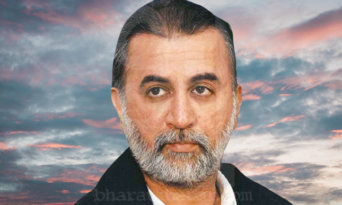Oxford University Selects SC Advocate Dr. Syed Saif Mahmood as Visiting Research Scholar
(Judicial Quest News Network)
The University of Oxford has selected Dr. Syed Saif Mahmood, Advocate Supreme Court as a visiting research scholar by the Bonavero institute of Human Rights, faculty of Law, University of Oxford under its research Scholar under its research Visitor Programme for 2022.
Dr. Mahmood holds a doctorate in comparative constitutional law in south Asia. He under the capacity of the lawyer has vehemently defended the free speech, democratic rights of the people and other human rights, both in and outside the courts of law and of handling litigations involving the complex issues of civil, public and constitutional laws.
Dr. Mahmood is recognized as an expert in Islamic Law in India, His works on the subjects were cited by a constitution bench of the Supreme Court in the Celebrated Triple Talaq Judgement.
Dr. Mahmood handled varied litigation involving complex issues of Civil, Public and Constitutional Laws. His professional interest also lie in interest also lie in resolution of Infrastructure, Inter-Corporate and Commercial disputes and Media entertainment laws-Subjects on which he successfully handled a wide variety of cases. He co-edits the Delhi High Court’s Bar Journal, Quarterly Bar reviews and is co-author of forthcoming book Supreme Court of India: A Jekyll & Hide Story.
His other area of expertise is Urdu Literature and its Cultural history. His book on Urdu Poetry in Mughal Delhi, Beloved Delhi: A Mughal City and Her Greatest poets (Speaking Tiger, New Delhi 2018) is widely-recognized as an authoritative work. He advices several cultural and literary organizations in South Asia and is a familiar face on television Channels and literature festivals.
While in residence at Oxford Mahmood will work on the status of free speech in Mughal courts with a focus on the treatment of dissenting and irreverent poets, and compare it with State and Judicial responses to literary and cultural dissent in modern India.




